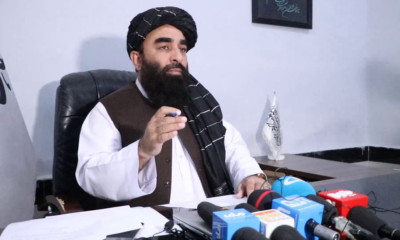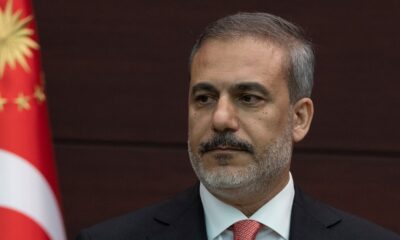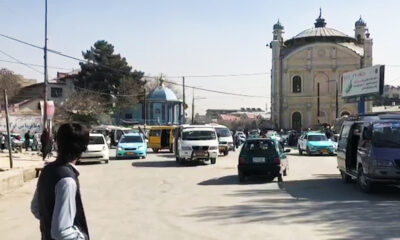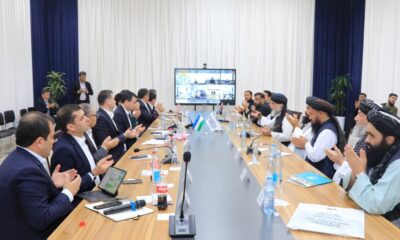Latest News
Ghani gives UNICEF’s polio unit boss 24 hours to leave Afghanistan
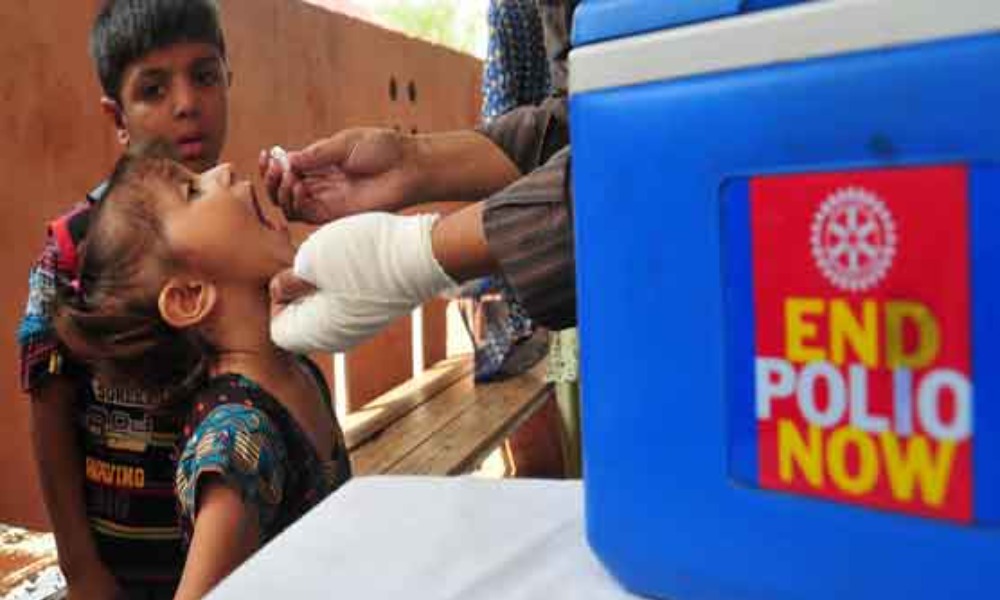
President Ashraf Ghani gave Mohammed Mohammedi, the head of the United Nations Children’s Fund’s (UNICEF) polio eradication team in Afghanistan, 24 hours to leave the country, a presidential spokesman said.
According to a Facebook post on Wednesday by Dawa Khan Menapal, Mohammedi was given notice to leave the country for “ignoring the president and for the lack of transparency in his work.”
Meanwhile the Ministry of Public Health said that UNICEF had spent $22 million on an awareness campaign around polio but failed to provide a report to government.
According to Masooma Ghafari, the deputy spokeswoman for the health ministry, there was still an increase in the number of cases despite money having been spent on polio campaigns.
“We need to bring changes in the section,” she said.
Ghani’s sudden move to have Mohammedi expelled drew sharp criticism from some analysts who felt the move would have a negative effect on aid coming in from international organizations.
“Unfortunately, President Ghani’s act with an international organization was startling, and the act will affect the planning of international organizations badly,” said Asif Mobaligh, an international affairs analyst.
Ghani chats to Bill and Melinda Gates about polio concerns
The sudden move to expel Mohammedi also comes just days after Ghani held a telephone conference call with Bill and Melinda Gates whose Foundation is a key donor in Afghanistan’s drive to rid the country of wild polio.
During the meeting the Gates and Ghani expressed their concerns over the surge in polio cases in Afghanistan due to restrictions imposed by the Taliban in areas under their control, the Presidential Palace said in a statement after the virtual meeting.
“The two sides also held a comprehensive discussion on reforming the polio vaccine implementation process and increasing facilities in this regard,” the statement read.
Bill and his wife Melinda run the Bill and Melinda Gates Foundation – a funding organization. Polio eradication is one of their top priorities.
The virtual meeting on Monday night came after the Afghan Ministry of Public Health claimed that more than 3.5 million children have been deprived of anti-polio vaccinations due to Taliban restrictions.
Lancet reports 2020 was a bad year for polio
Earlier this month, the world’s leading medical journal, The Lancet, reported that there is growing concern about the effect the COVID-19 pandemic could have on global efforts to eradicate the disease.
Polio vaccination campaigns in Afghanistan were stopped in March last year for several months before being restarted in August.
Speaking to The Lancet, Mohammedi said the decision to halt vaccinations had been “a precautionary measure” as they did not want to contribute towards the spread of COVID-19.
“We didn’t want to replace one virus with another,” he said.
In 2020, 56 polio cases were reported in Afghanistan; in 2019 the number was 29.
UNICEF however estimates that last year, about 50 million children in Afghanistan and Pakistan missed out on vaccines because of the disruption in immunisation due to the pandemic.
Abdul Quayum Pokhla, director of the Regional Emergency Operation Centre for polio in
Kandahar, meanwhile told The Lancet that “2020 was another bad year not just for the south, but for the whole country.”
He said: “The virus spread not just to endemic areas in Afghanistan, but to some free zones. We’ve missed so many children and it will lead to reduced immunity. We are expecting more cases – the virus is circulating in the environment.”
UNICEF states that since 2018, approximately one million children just in southern Afghanistan have missed out on polio vaccinations because of insecurity.
“When it comes to a rise in polio cases, does it make a difference to have 50 or 100 cases? It’s the same root causes,” Mohammedi said.
“We have issues with access and this lack of access has been underestimated by the polio programme. For more than two and a half years some areas have had no access [to vaccines] but the strategy is the same”.
He said “polio is not a priority except for people working for the programme. We have donors that have become massively passive. We need active donors. The UN talks about polio as
if it’s a priority, but it’s not at all. If it were a top priority, the game would change.
Latest News
IEA: Special circle in Pakistan has launched mission to destabilize region
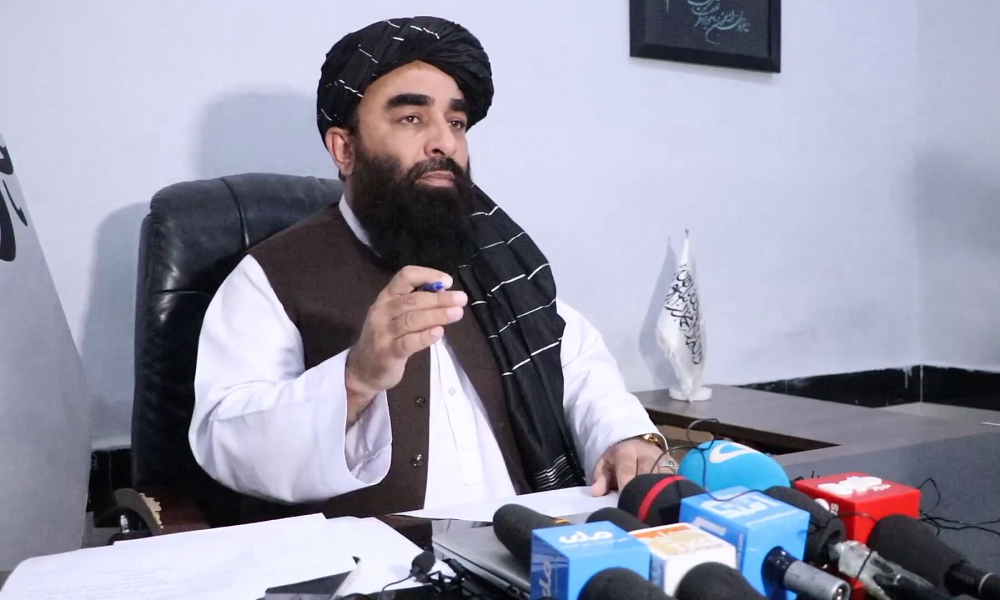
The spokesperson of the Islamic Emirate of Afghanistan, Zabihullah Mujahid, says that a special circle in Pakistan has launched a mission to destabilize the region following the recent escalation of conflicts between the two countries.
Speaking at a press conference in Kandahar province on Friday, Mujahid urged regional countries to put a stop to the “troublemakers.”
Mujahid stated that Afghan air forces had precisely targeted Pakistani military centers.
In response to a question about what position the Islamic Emirate would take if regional countries called for a halt to the war, he said that the Islamic Emirate seeks a peaceful resolution of issues and that they have previously held several rounds of negotiations and discussed the matters; however, the Pakistani side has not been prepared to resolve the issues through peaceful dialogue.
The spokesperson of the Islamic Emirate emphasized that the Pakistani side consistently attempts to fabricate pretexts for war and links its internal issues to Afghanistan.
Mujahid further stated that Pakistani aircraft are still patrolling Afghanistan’s airspace.
Last night, following retaliatory attacks by Afghan forces on Pakistani military facilities across the Durand Line, Pakistan’s military regime carried out airstrikes on locations in three Afghan provinces.
Mujahid confirmed that Pakistani forces bombed certain areas in Kabul, Kandahar, and Paktia.
He added that during the fighting that began Friday night, 13 Afghan soldiers were “martyred” and 22 others were wounded.
The Islamic Emirate of Afghanistan described the operation as retaliation for Pakistan’s previous attacks in Nangarhar and Paktika earlier this week.
The Afghan Ministry of National Defense also announced that in these clashes, Afghan forces killed 55 Pakistani soldiers, captured several others, and seized two military headquarters along with 19 security posts.
Latest News
Turkey launches initiative to diffuse Afghanistan-Pakistan tension
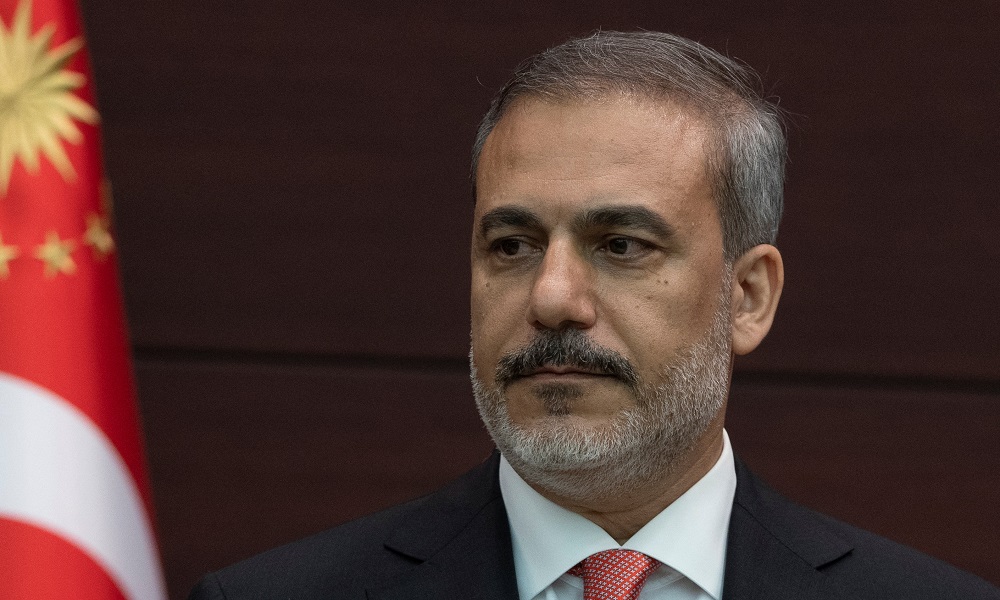
Turkish Foreign Minister Hakan Fidan on Friday exchanged phone conversations with both Afghan and Pakistani top diplomats as well as other regional prominent actors amid growing tension between the two neighboring countries.
Fidan spoke on the phone with Afghan Foreign Minister Amir Khan Muttaqi and Pakistani Foreign Minister Mohammed Ishaq Dar, Turkish media reported citing sources.
The initiative came after the two countries attacked each other.
Turkish media reported that Fidan also spoke with Qatari Foreign Minister Sheikh Mohammed bin Abdurrahman Al Thani and Saudi Foreign Minister Prince Faisal bin Farhan to discuss the recent developments between Afghanistan and Pakistan.
Latest News
Afghan Air Force conducts airstrikes in Islamabad, other cities
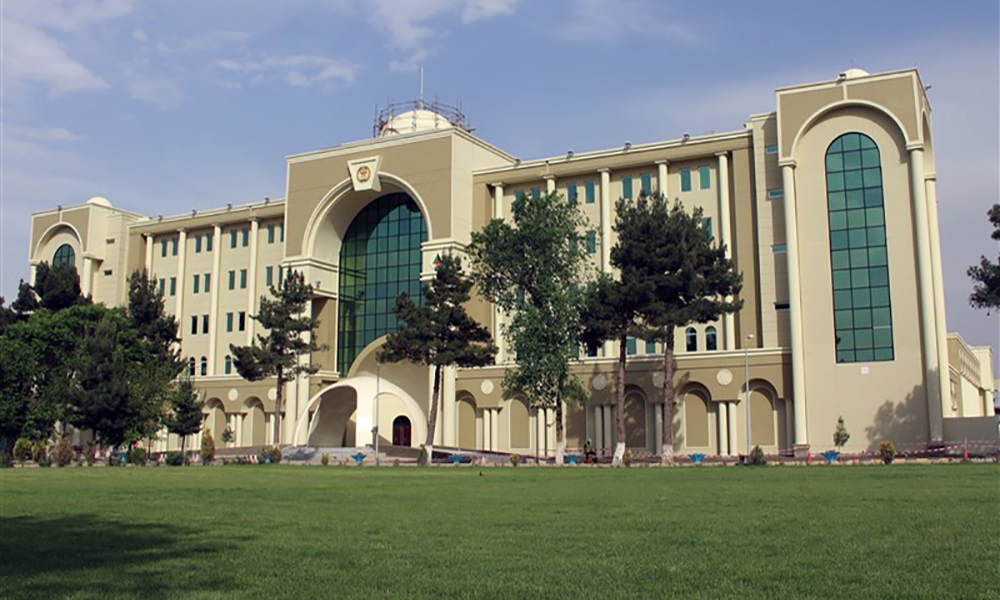
Afghan Air Force conducted airstrikes against Pakistani military targets in Islamabad and other cities on Friday, Afghanistan’s Ministry of National Defense said.
The strikes were carried out at 11:00a.m. near Faizabad in Islamabad, targeting a military camp, the Nowshera Cantt, Jamrud Military Colony, and Abottabad.
According to the Ministry, the operations successfully hit key military sites, centers, and facilities. The strikes were conducted in response to Pakistani military air raids carried out last night in Kabul, Kandahar, and Paktia.
-

 Latest News5 days ago
Latest News5 days agoRussia estimates up to 23,000 terrorists present in Afghanistan
-

 Latest News4 days ago
Latest News4 days agoIEA rejects Russia’s claims of foreign militants in Afghanistan
-
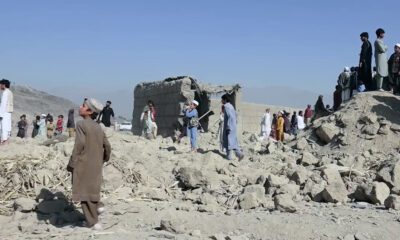
 Latest News5 days ago
Latest News5 days agoUNAMA reports civilian casualties from Pakistani airstrikes in Afghanistan
-

 International Sports4 days ago
International Sports4 days agoAFC Champions League Elite gears up for Round of 16 as league stage concludes
-

 Sport3 days ago
Sport3 days agoRichard Pybus appointed as head coach of Afghanistan’s national cricket team
-
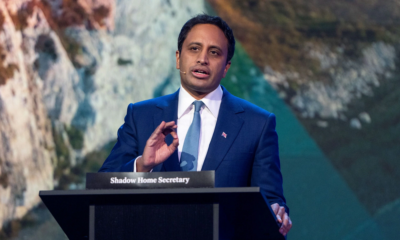
 Latest News5 days ago
Latest News5 days agoUK’s Reform party pledges visa ban affecting Afghanistan and five other states
-

 World2 days ago
World2 days agoIndia’s Modi backs Israel in address at Israeli parliament
-

 World5 days ago
World5 days agoMexican military kills cartel boss ‘El Mencho’ in US-backed raid


